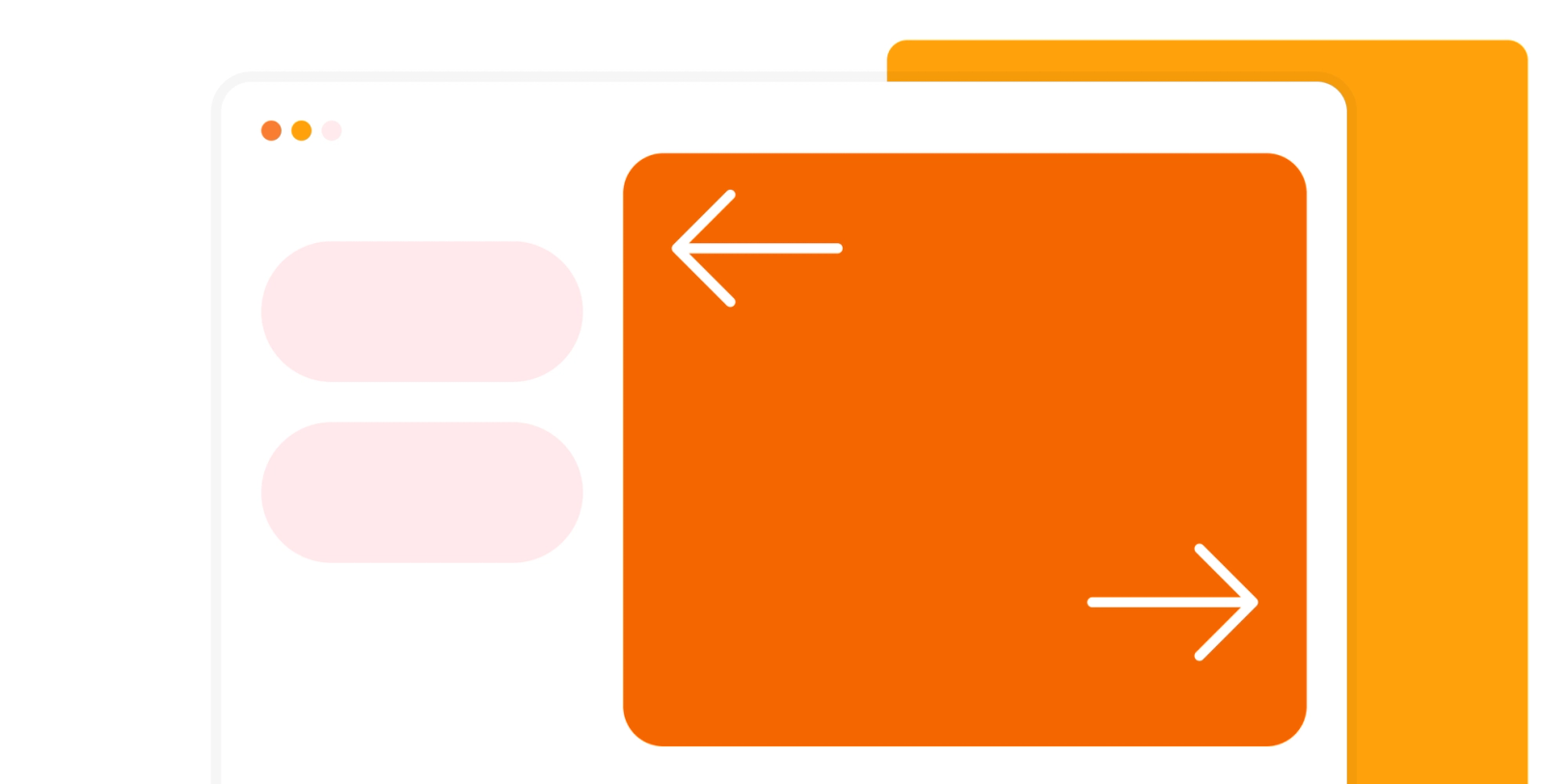For entrepreneurs wondering where to sell digital products in 2025, you've probably noticed there are a great many platforms vying for your custom.
This is great news — we all love to have a choice.
But, it can also be overwhelming weighing up pros and cons and comparing options to discover what’s actually going to work best for you.
If you are an educator looking to sell online subscription-based courses and programs, you'll have different needs than someone selling one-time purchase music sample packs.
To make things simpler, we review the three major types of e-commerce platforms, who they suit, their pros and cons, and some of the most popular examples of each platform type.
Whatever your niche, this article will guide you through some of the best options to determine the best website to sell digital products in 2025.
What is a digital product?
Let's start by understanding what we mean by a ‘digital product.’ Digital products are intangible goods, assets, or services that can be made once and sold repeatedly online.
They differ from physical products in that they don't need constant reproduction, giving creators the opportunity to focus on enhancing the product rather than simply producing more.
Digital products can come in a great variety of forms, including software and applications, templates, virtual musical instruments, memberships, online courses, community subscriptions, and downloadable content like printable artwork for your home.
Finding a niche, making quality imaginative digital products, and targeting a specific customer base can lead to long-term success and open up a range of opportunities for the generation of relatively hassle-free income.
What’s not to like?
💡Tip: Read Best digital products to sell in 2025 for ideas that sell.

Deciding where to sell digital products
There are a host of options available to the budding entrepreneur selling digital products or looking to boost sales if your current solution is not paying off — and each solution caters to different needs and preferences.
Marketplaces such as Gumroad, Etsy, RedBubble, and Udemy provide a large customer base and a pre-established platform for showcasing your products.
E-commerce platforms like Shopify, Podia, and Sellfy offer the flexibility of creating your own unique storefront to sell digital goods directly to customers.
One-page checkout options, like Checkout Page, streamline the purchasing process, making it easy for customers to buy your digital products with minimal friction and place your products wherever you and your audience interact.
Each of these options has its own set of features and benefits, catering to the diverse requirements of entrepreneurs looking to begin selling or to boost their current digital product sales.
Let’s explore these options and review the positives and negatives together!
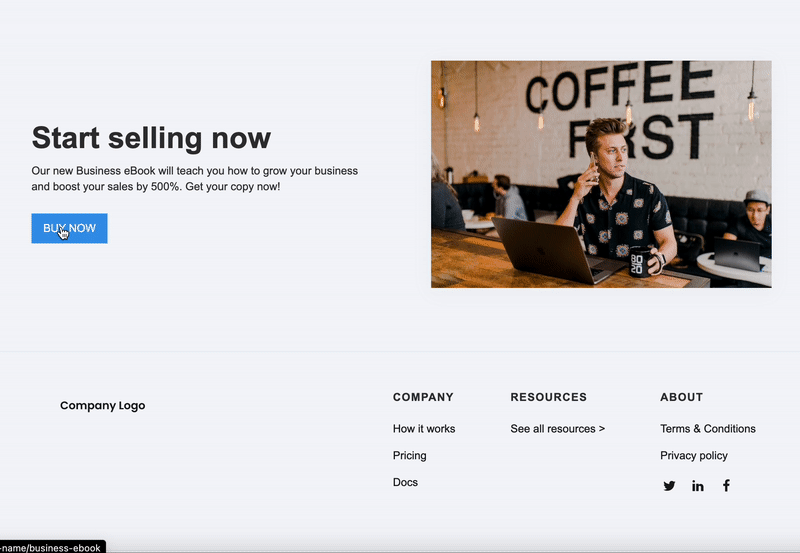
Selling digital products on marketplace platforms
What are the features of a marketplace platform?
An online marketplace is a website where vendors can showcase and sell their products to an audience of potential customers. Imagine it like a virtual shopping mall or market where different sellers offer a variety of items, both physical and digital.
Typically, marketplaces act as a ‘"merchant of record," — meaning they are the entity responsible for processing and handling customer payments, overseeing the entire payment process from purchase to settlement of funds, and applying appropriate tax additions.
Pros of selling digital products on a marketplace
- Established a platform with existing traffic
- Quick and easy set-up process compared to creating your own website
- Can benefit from the marketplace's marketing efforts
- Merchant of Record platforms take care of your tax
Cons of selling digital products on a marketplace
- High transaction fees and percentages are taken from sales
- Very limited customization options and overall flexibility
- A merchant of record site owns the customer relationship, not you, meaning you may not be able to market to or communicate with your audience
- You will often pay the highest rates of tax with a merchant of record site
- Increased competition with very high numbers of other sellers on the same platform
Selling digital products on e-commerce platforms
Features of an e-commerce platform
E-commerce platforms like Shopify and Printify, provide sellers with the tools to create their own customized online storefronts. These platforms enable individuals and companies to design and manage their unique e-commerce websites, showcasing their brands, products, and stories.
Unlike marketplaces, these platforms give sellers more control over the look and feel of their online presence, offering greater flexibility.
Pros of selling digital products on e-commerce platforms
- Full control over branding and customer experience
- Customizable storefront and website design
- Ability to create and sell a wide variety of digital products
- Flexibility in pricing and promotions
- Integration with various payment gateways and marketing tools
Cons of selling digital products on e-commerce platforms
- It may require more effort and time for initial setup and customization
- Monthly subscription or transaction fees may apply
- Responsibility for driving traffic and marketing efforts falls on the seller
- Maintenance and management of the website's technical aspects
- Varied learning curves based on the platform's features and tools
Sell digital products on your own website
Many considering selling digital products explore creating their own website. They want full control over how they display their products and express their brand. It also gives them the freedom to engage with their audience directly.
Webflow and Framer are user-friendly platforms. They let anyone design, build, and launch custom, responsive websites without coding. So, those without technical skills need not be intimidated. You stay fully in control!
Pros of selling digital products on your own website
- Complete control over branding, design, and customer experience
- Ability to customize product offerings and pricing strategies
- You get to choose how you take payment from your customers
- Full ownership of customer data and relationships
- Potential for higher profit margins with much lower transaction fees
Cons of selling digital products on your own website
- Setup and maintenance of the website and payment system may require a little upfront effort
- You have the responsibility for driving traffic and conversion rates
- It may require ongoing investment in SEO, advertising, and other marketing efforts to generate consistent sales
Selling digital products with a single product checkout page
Features of a single-product checkout page?
Embracing a single-page, single-product checkout approach when selling digital products offers a streamlined and user-friendly experience for your customers.
By eliminating unnecessary steps and complexities, you make it easier and more efficient for customers to complete their transactions - resulting in far fewer abandonments!
Shopping cart abandonment is a real challenge for most businesses. In fact, more than 70% of shopping carts are eventually abandoned.
A streamlined checkout page can boost a large e-commerce store's conversion rate by 35%. You can show your digital products to your audience wherever you connect with them. This includes newsletters, social media bios, blogs, and websites.

Pros of selling digital products with a checkout page
- Efficient, streamlined, and highly flexible purchase process
- Massively reduced chances of customer abandonment during checkout
- User-friendly, no-code rapid setup of pages
- Low monthly costs and often no fees mean better profit margins
- You get to sell from anywhere you interact with your audience and maintain ownership of your audience's data
Cons of selling digital products with a checkout page
- May not be suitable for selling multiple products in a single transaction
- The responsibility for a receptive audience is with the seller
- Customization options may be restricted compared to multi-step checkout processes
What are the 18 best websites to sell digital products in 2025?
The array of options out there is vast, so we have worked to compile a list of the best websites to sell digital products in 2025, comparing marketplace and non-marketplace options to help steer you in the best direction!
🥁 Ready? Drumroll, please!
Best platforms to sell digital products in 2025
1. Checkout Page
At Checkout Page, we are proud of the ease and cost-effectiveness with which our platform offers to digital entrepreneurs. Our no-code solution enables users to create single-product pages in a matter of moments. These pages can be shared as links, QR codes, or embedded on a website with just a few clicks.
We help you boost your conversions with features like one-click upsells, order bumps, discount codes, and the ability to build sales funnels without any technical know-how.
Checkout Page involves a low monthly subscription, and no fees are taken from sales, making it a highly cost-effective option for those looking to maximize profit.
You can offer free trials, take deposits, one-off payments, subscriptions, and payment plans. There are also ‘pay as you choose’ and donation options, as well as features to create product variants, discounts, and more.
Last but not least, Checkout Page puts you in full control of your audience data, leaving you free to get creative as to where and how you engage with them when selling your products.
Find out for yourself and see Checkout Page in action by signing up for a 7-day free trial, no credit card needed!

2. Thinkific
Thinkific is a powerful platform for creating online courses. It helps individuals and businesses to make, market, and sell courses. Instructors can use its tools and templates to create interactive, engaging courses.
It helps with marketing courses, tracking enrollments, and engaging students. This supports creators in delivering high-quality education to their audiences.
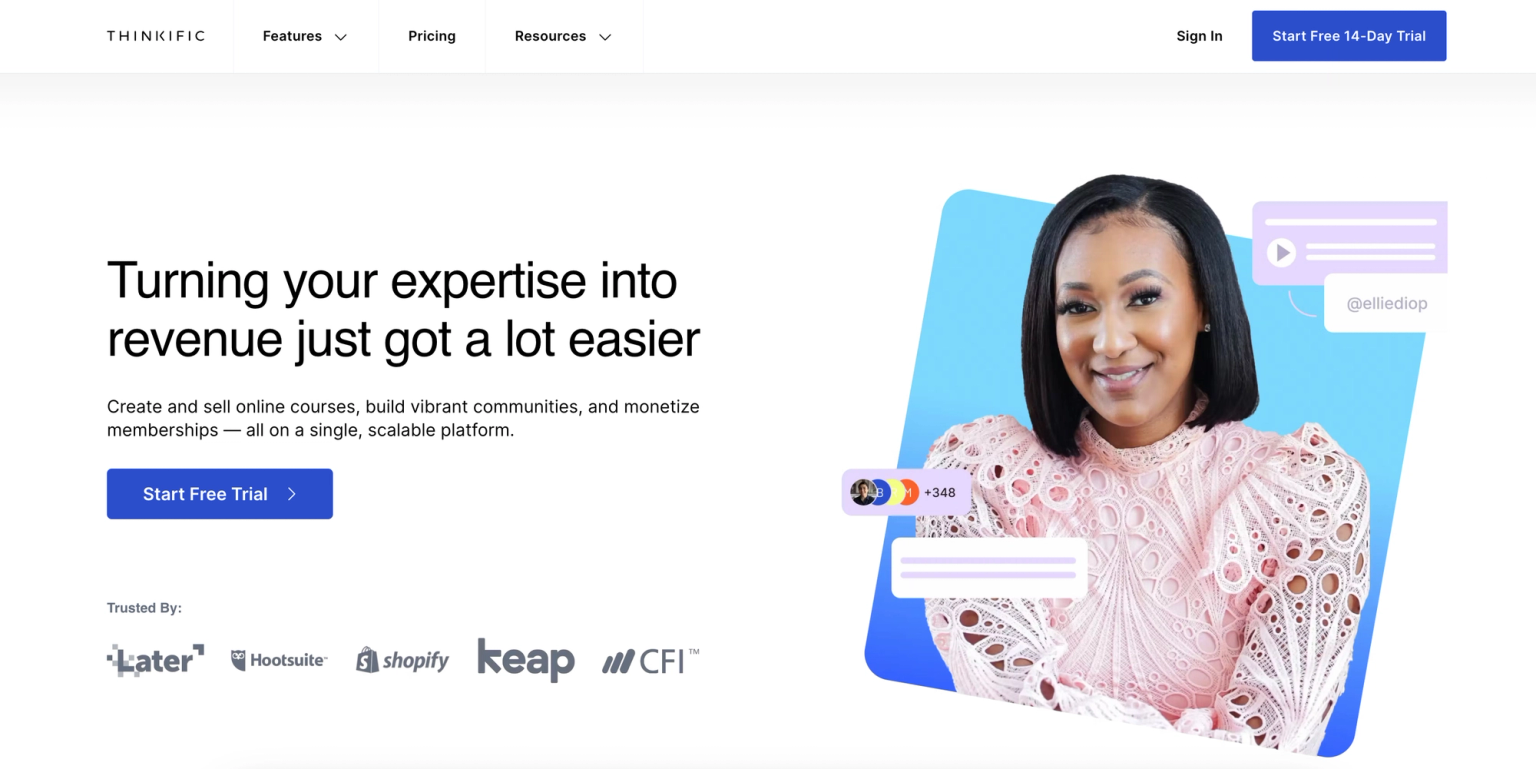
3. Podia
Podia is a digital storefront for creators of online courses, memberships, and digital downloads. It's an all-in-one solution. This platform lets creators build a branded store.
They can engage their audience and market their digital products. It's easy to use. Podia's features include course hosting, email marketing, and membership tools. They help creators grow their digital product businesses.
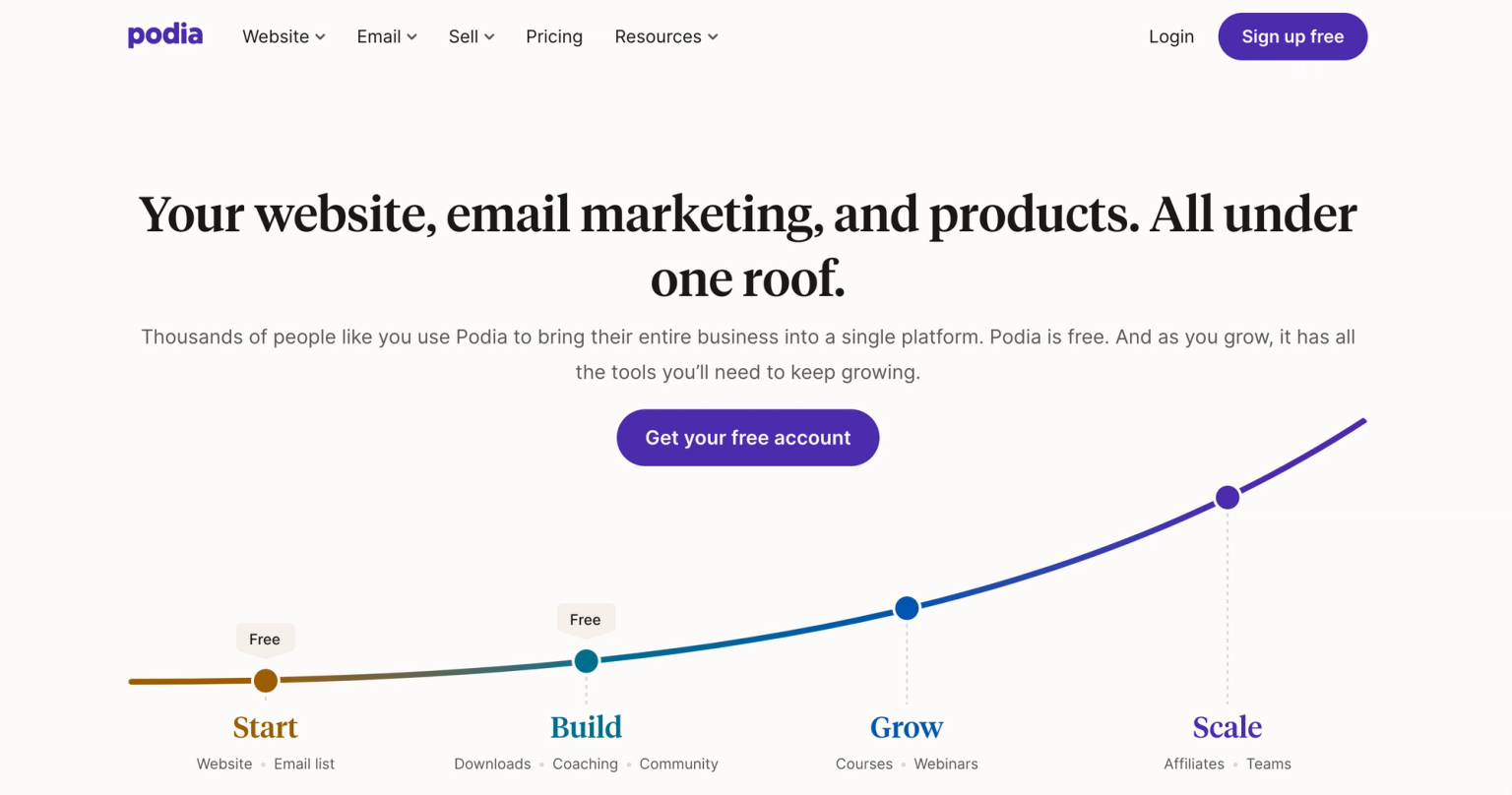
4. Sellfy
Sellfy is an e-commerce platform focused on helping creators sell digital products directly to their audience. Its straightforward setup makes it easy to offer and monetize digital goods, including e-books, music, videos, and more.
Sellfy also provides features for marketing, analytics, and integrations, supporting creators in effectively selling and promoting their digital products.
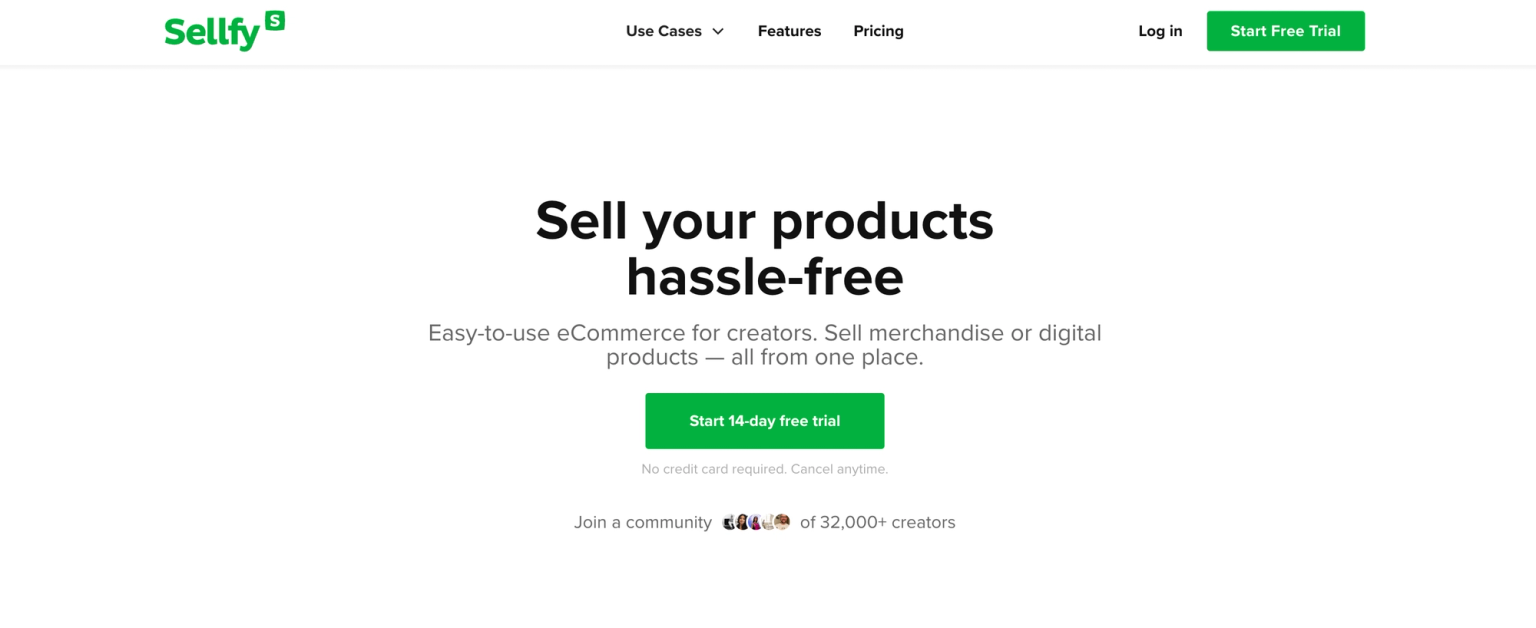
5. Shopify
Shopify is a leading e-commerce platform that enables individuals and businesses to create and operate online stores. With its comprehensive suite of tools, Shopify supports entrepreneurs in setting up and customizing their online storefronts, managing inventory, processing payments, and tracking orders.

6. Printify
Printify serves as an excellent print-on-demand service for creators aiming to sell custom-designed products, including apparel and accessories. It offers seamless integration with major e-commerce platforms, providing creators with a user-friendly interface to manage digital product offerings efficiently and expand their customer reach.
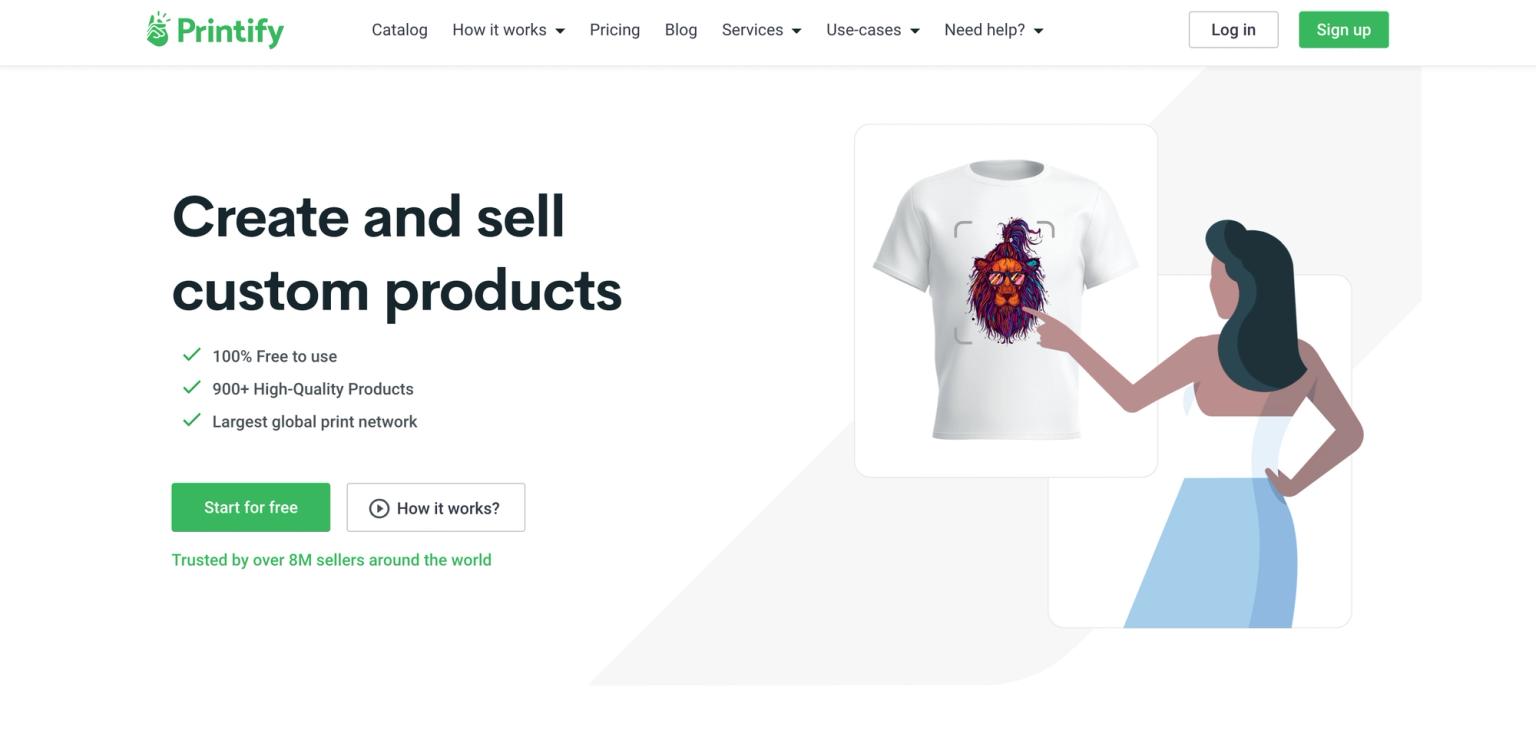
7. Payhip
Payhip is an e-commerce platform designed to assist individuals and businesses in selling digital products and memberships. Through a simple setup process, creators can showcase and sell their digital goods directly to their audience. Payhip offers features for product management, marketing, and affiliate tracking to support creators in effectively selling and promoting their digital products.
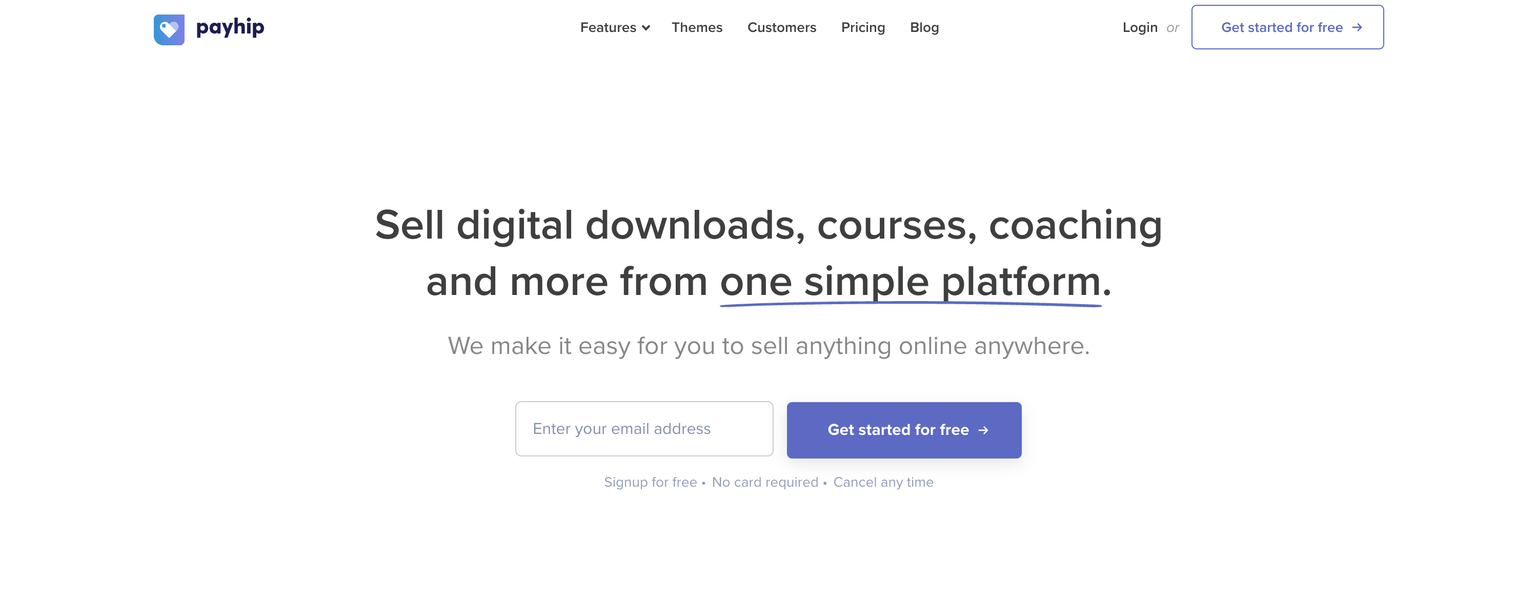
8. SendOwl
SendOwl is an e-commerce platform that provides creators the ability to sell digital products, memberships, and subscriptions directly to their audience. With its focus on simplicity and flexibility, SendOwl enables creators to personalize the selling and delivery process for their digital content.
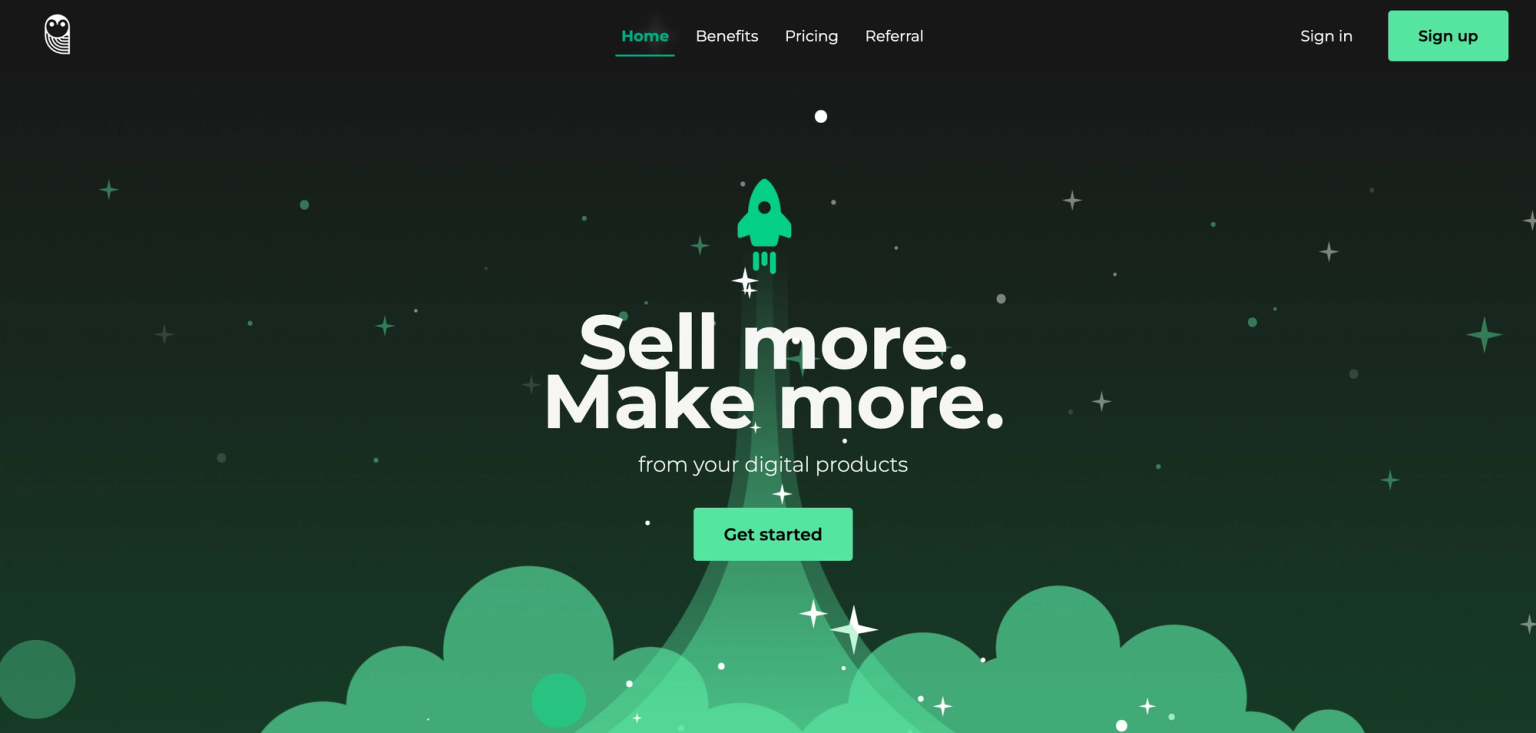
9. SquareSpace
SquareSpace is a website-building platform that offers a comprehensive suite of tools for creating professional websites and online stores. With its e-commerce functionality, SquareSpace enables individuals and businesses to set up and manage online stores to sell physical and digital goods.
The platform provides a range of website templates, marketing tools, analytics, and payment processing features.
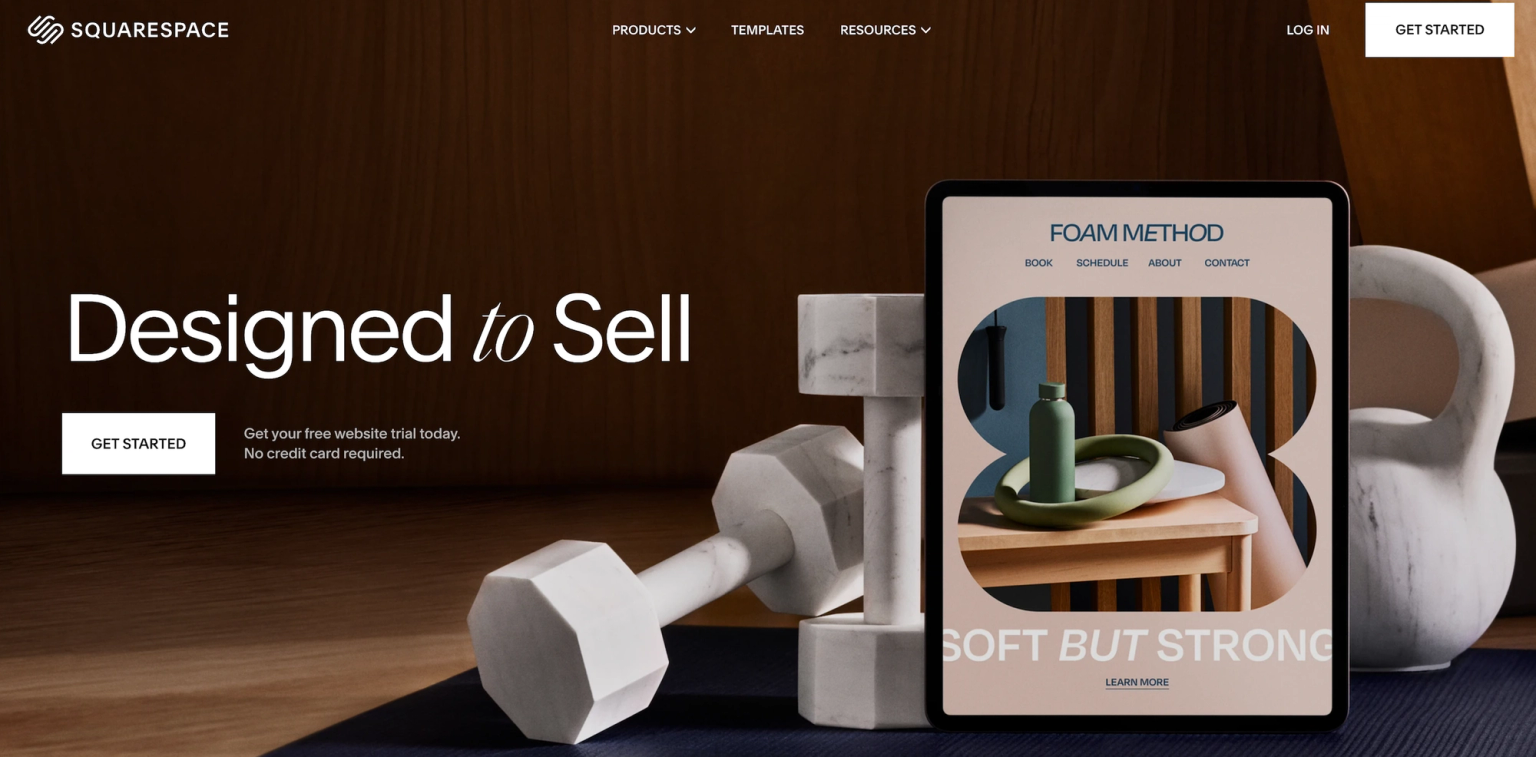
Best marketplaces to sell digital products in 2025
1. Gumroad
Gumroad is a platform that empowers creators to sell digital products directly to their audience. With its easy-to-use interface, creators can market and sell products such as e-books, music, software, and more, enabling them to build an online storefront with minimal hassle.
Gumroad also offers features like pre-orders, upselling, and audience management to assist creators in growing their customer base and maximizing their sales potential.
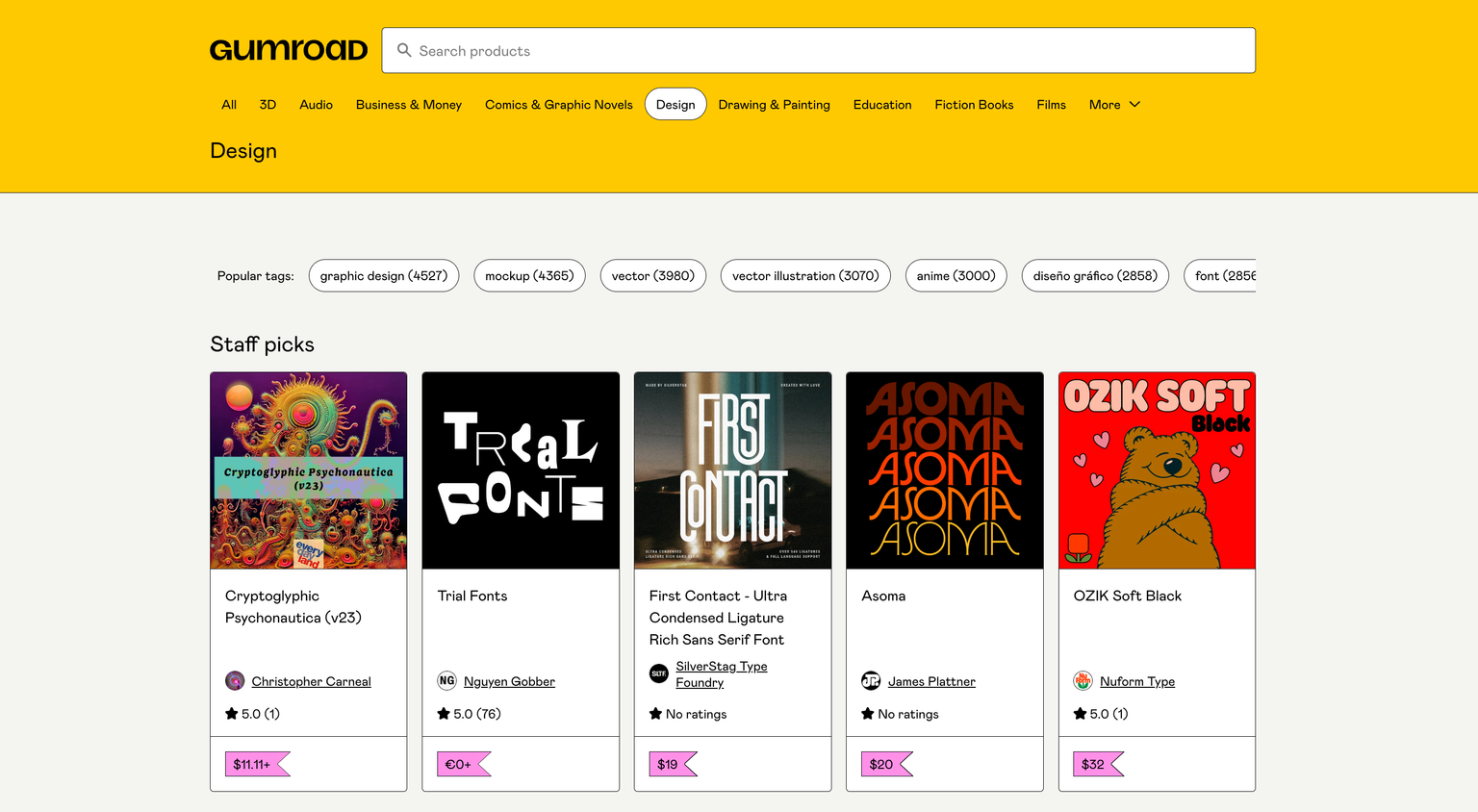
2. Etsy
Etsy is a popular online marketplace specializing in handmade, vintage, and unique goods. It serves as a platform for independent creators and artisans to showcase and sell their art, jewelry, clothing, home decor, and other handmade items.
Etsy's community-driven approach allows both sellers and buyers to engage with one another, fostering a sense of community and supporting small-scale and independent business ventures.
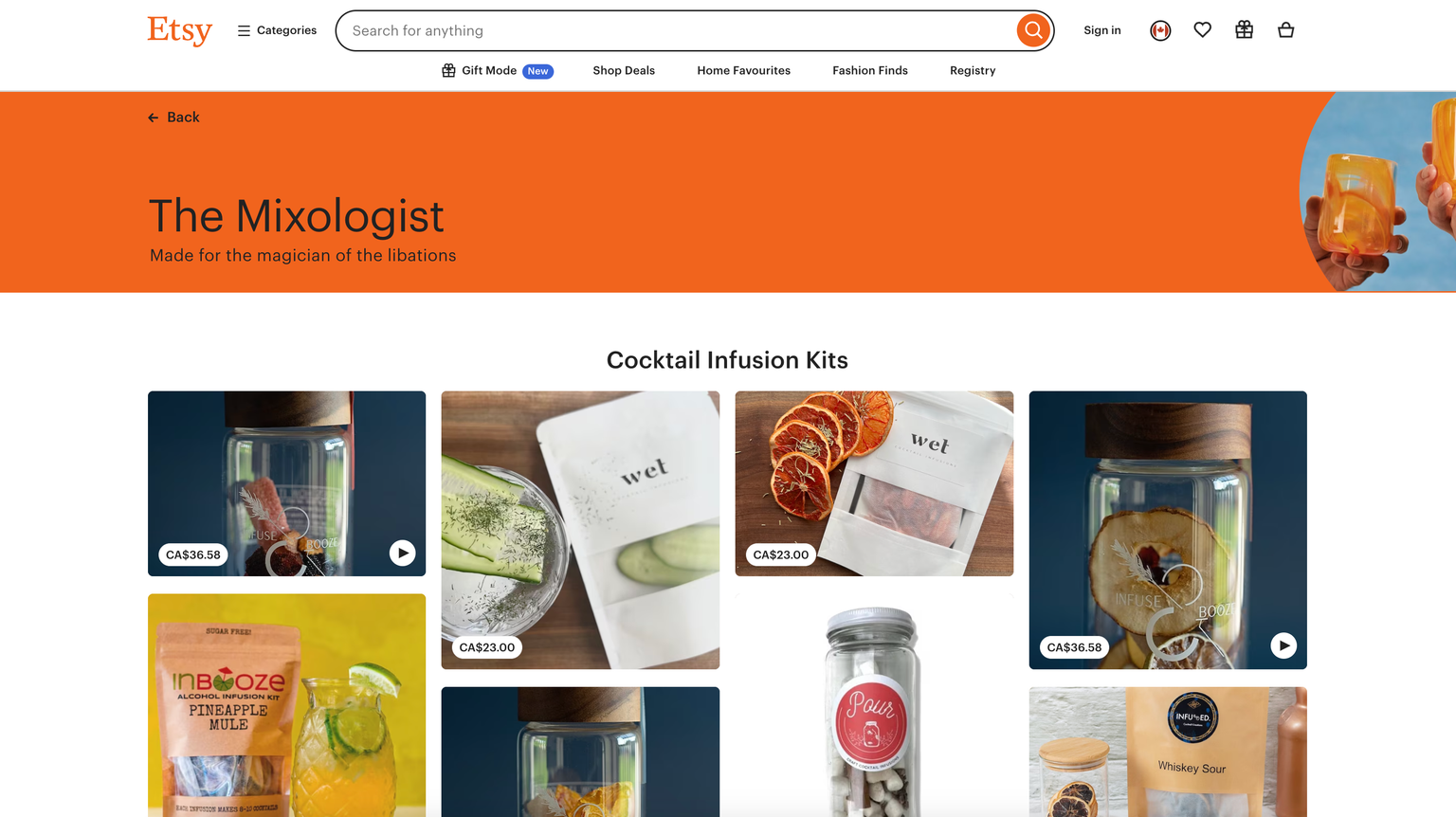
3. Udemy
Udemy is a popular online learning platform that offers a broad array of courses on a variety of topics. Instructors can create and sell their courses on the platform, reaching a wide audience of learners.
Udemy provides a marketplace for creators to share their expertise and educational content, offering opportunities for individuals to expand their knowledge and skills.
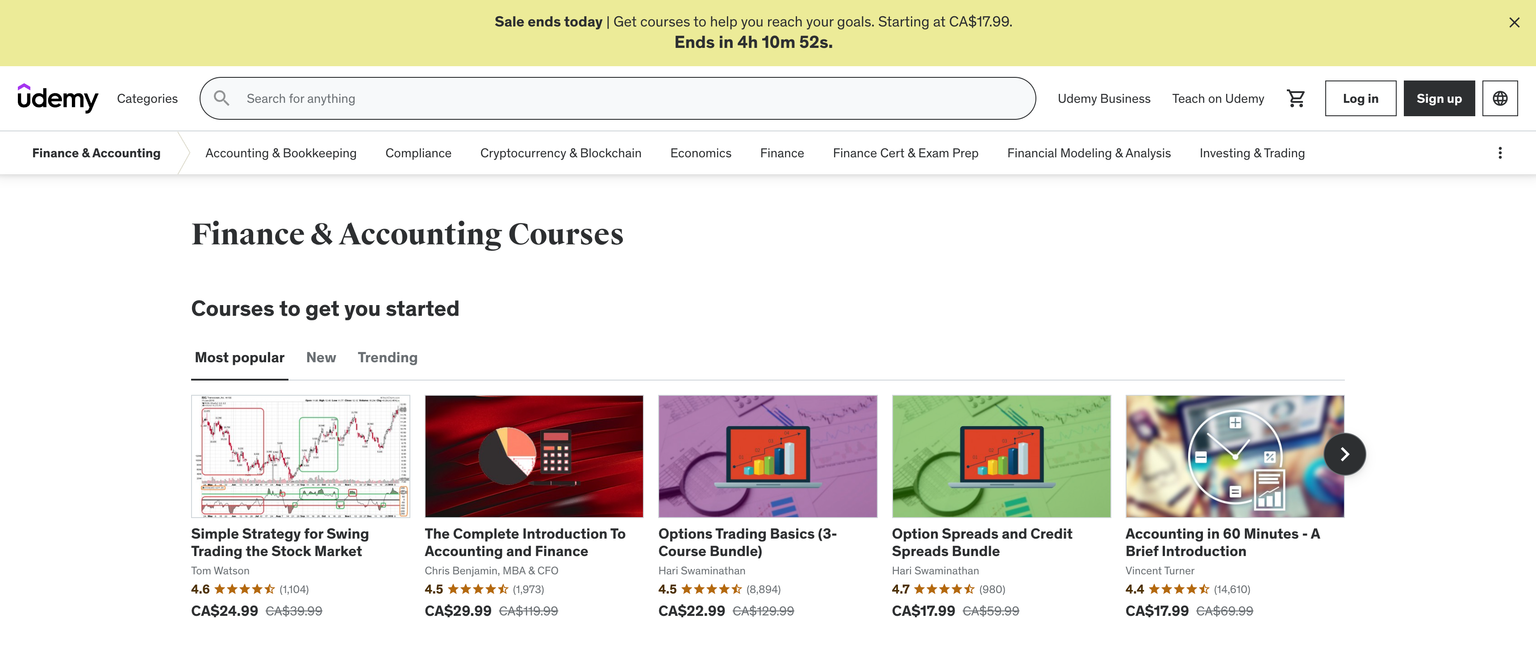
4. RedBubble
RedBubble is a global online marketplace that offers print-on-demand products featuring artwork from independent artists. This platform enables artists to monetize their designs by offering them a wide variety of products, including clothing, home decor, stationery, and more.
RedBubble's print-on-demand model ensures that products are created as they are ordered, minimizing the need for inventory management and allowing artists to focus on creating and promoting their art.
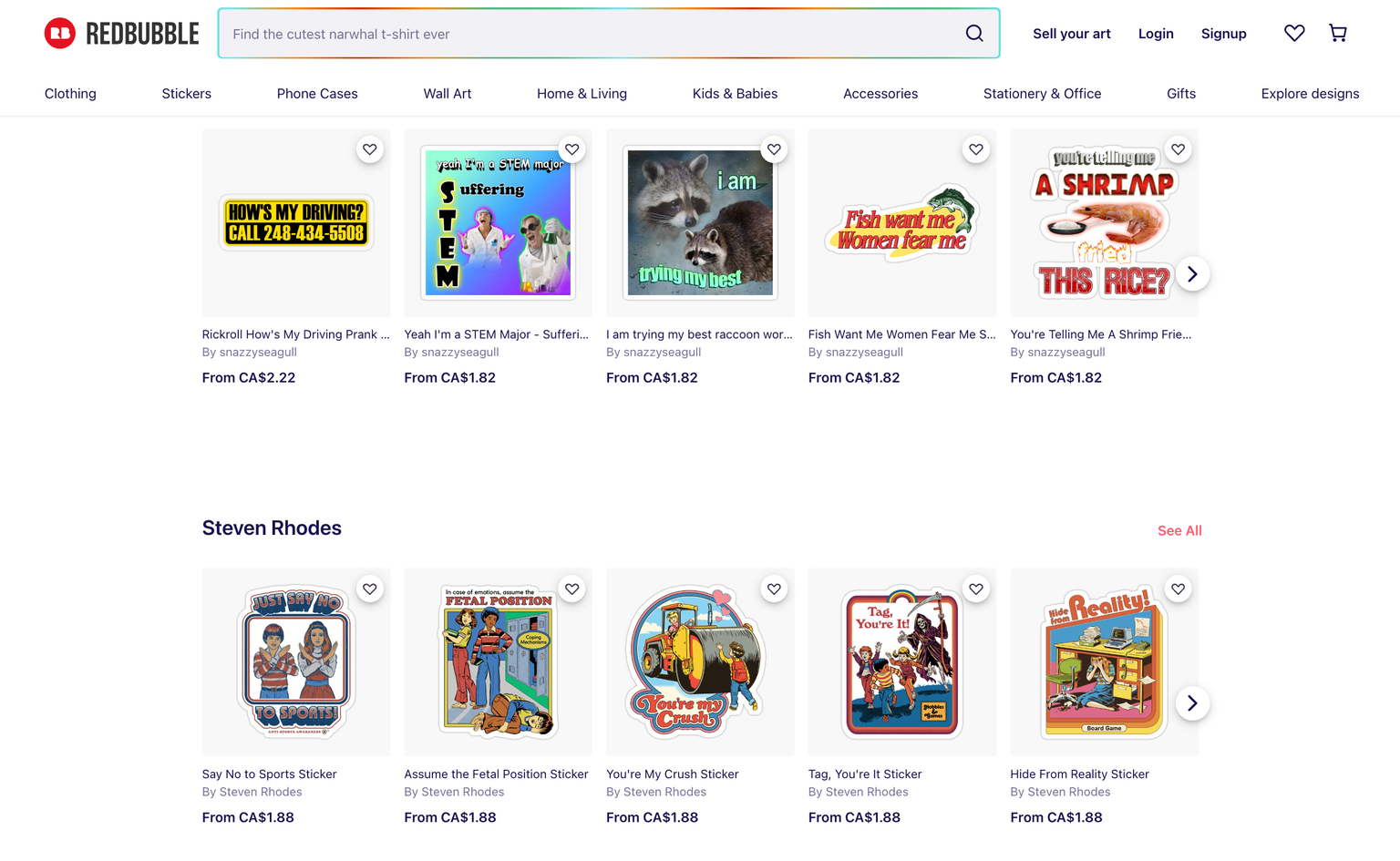
5. Amazon
The marketplace titan, Amazon provides a valuable platform for selling digital products, offering access to a vast customer base, robust marketing capabilities, and a trusted brand reputation.
With Amazon, digital product sellers can leverage the platform's established infrastructure - and customer trust the customer trust this platform enjoys, making it a household name globally, which means you benefit from that trust when selling on this platform.
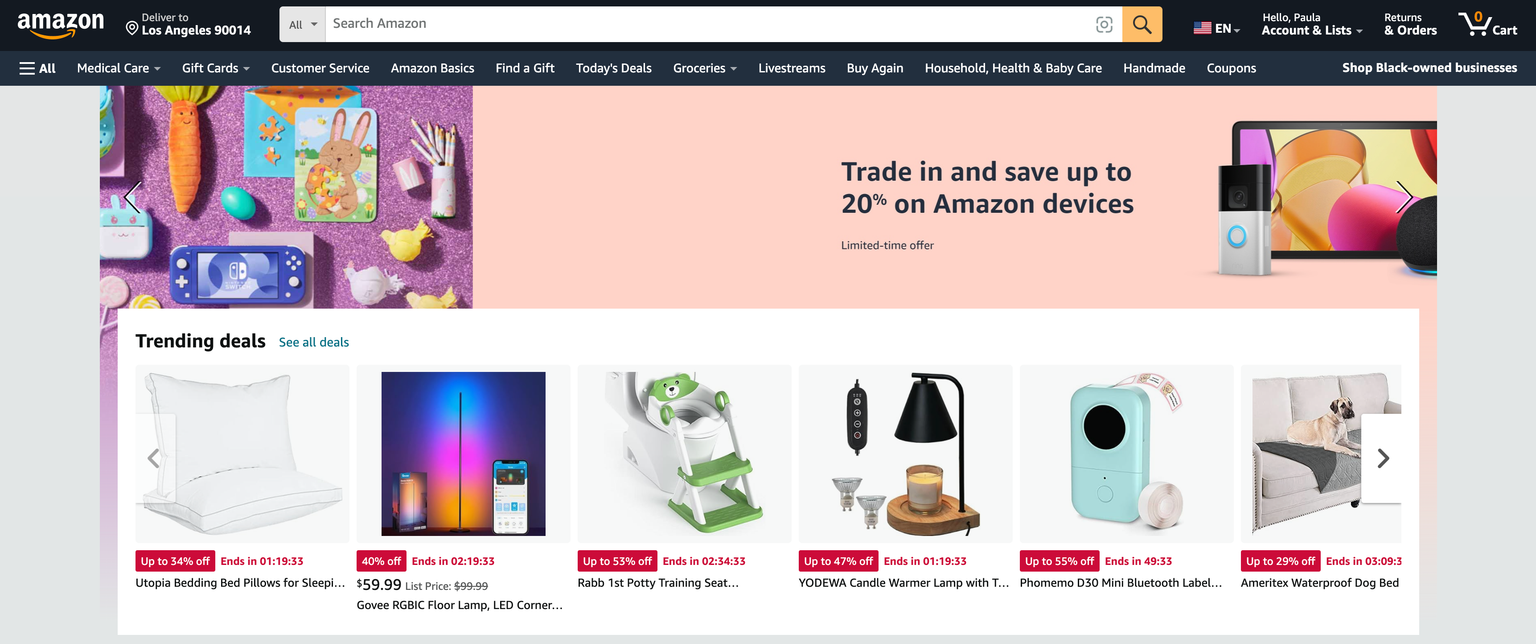
6. eBay
A marketplace veteran, eBay boasts a broad customer base, a user-friendly interface, and secure transactions, making it an appealing platform for sellers of digital products. Its global reach and trusted reputation provide an excellent opportunity for connecting with international customers and driving sales in a reliable online marketplace.
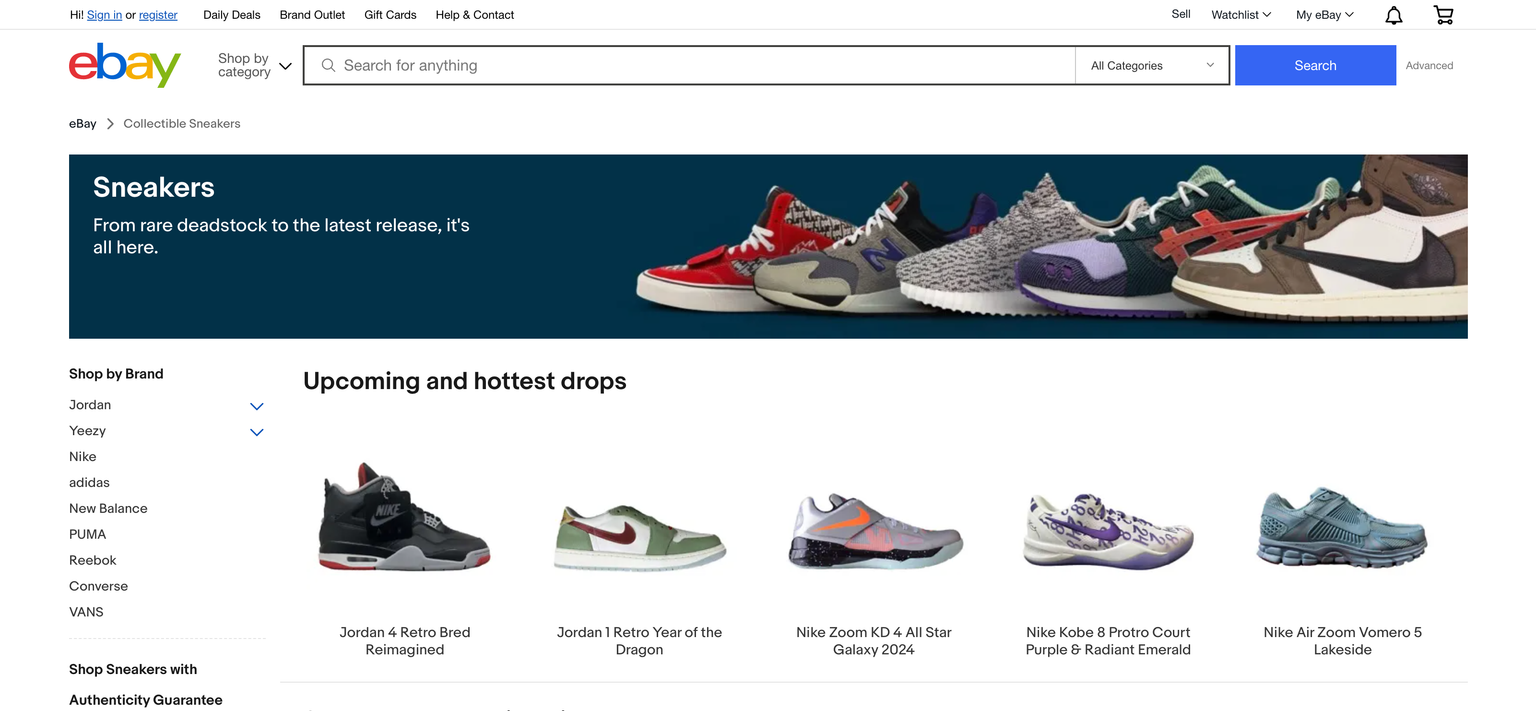
7. Envato
Envato is a network of digital marketplaces that offer creative assets for web design, graphics, and multimedia projects. Through its platforms, creative professionals can access a wide range of digital assets, including themes, templates, music, and more.
Envato's ecosystem supports both content creators and users, enabling seamless transactions and fostering collaboration within the creative community
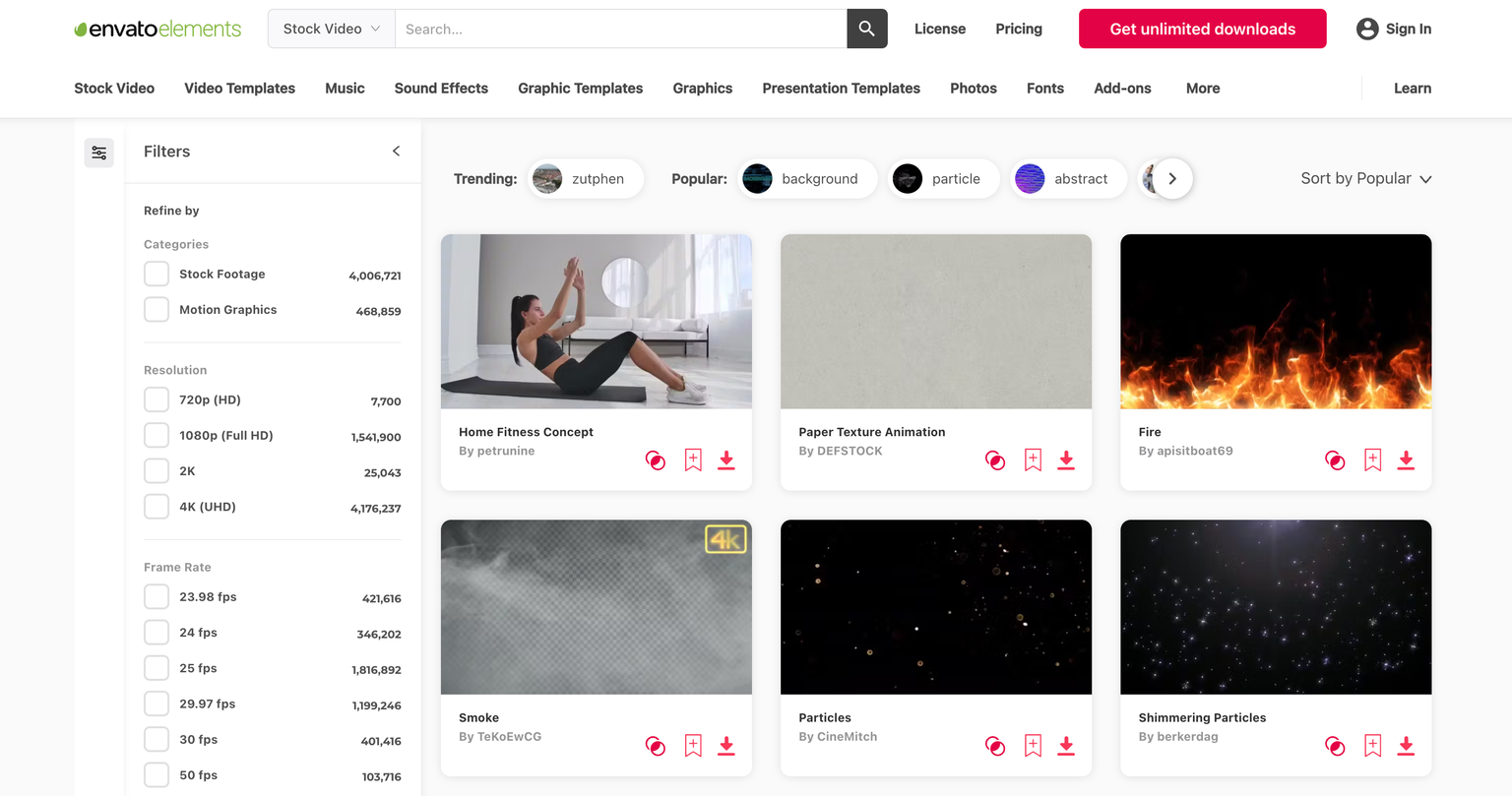
8. Creative Market
Creative Market is a marketplace for digital design assets, offering a wide variety of resources such as fonts, graphics, templates, and themes. This platform serves as a hub for designers and creatives to sell and purchase high-quality digital assets.
Creative Market fosters a community of creative professionals, providing them with the tools and resources they need to succeed in their projects and businesses.
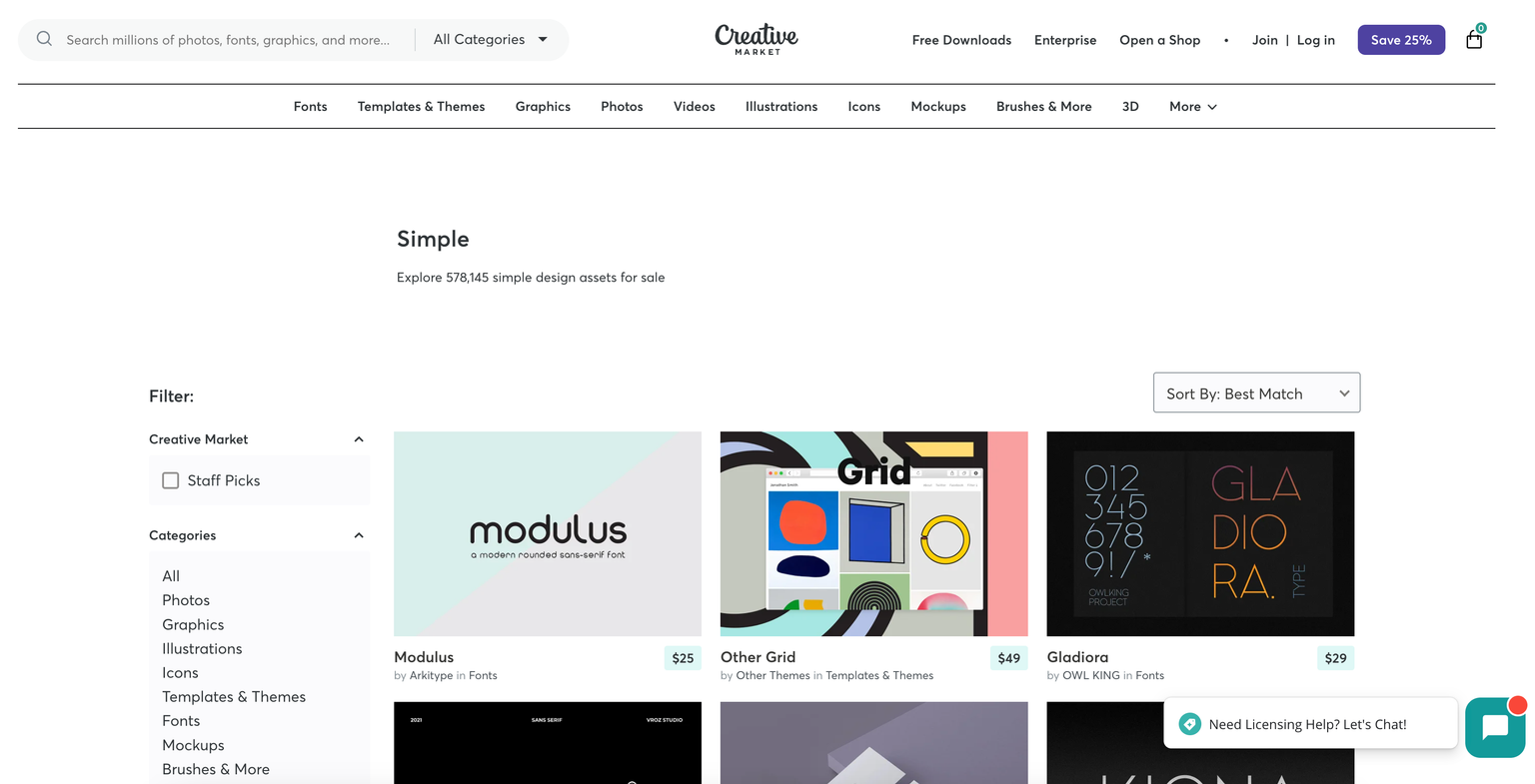
9. Zazzle
Zazzle is a popular platform that provides artists and designers with the tools to create and sell custom-designed products. Through its interface, creators can apply their designs to a diverse array of products, ranging from clothing and accessories to home decor items and electronic accessories.
Zazzle also offers a global fulfillment network, which ensures that products can be produced and shipped to customers worldwide.
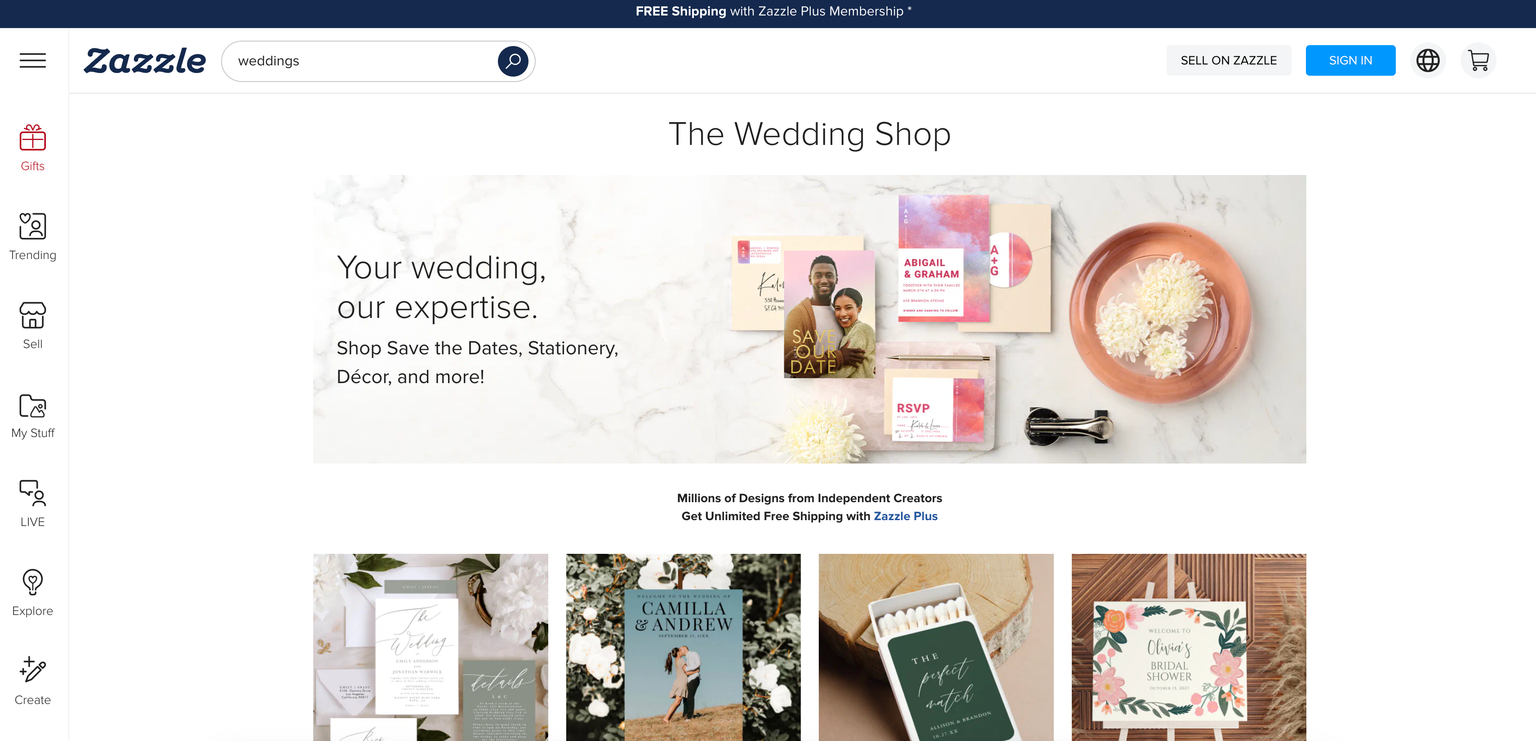
Well, there you have it! A good list of the most popular marketplaces in 2025 that can make getting up and running and selling digital products quick and easy.
But — there is a cost. Marketplaces make you pay for the convenience of the ready-made audience and the other services they offer.
To see how dramatically costs can rise on a marketplace platform, read How Gumroad's pricing works + a cheaper alternative
What makes Checkout Page a great alternative to a marketplace?
Checkout Page enables a creative approach to how, where, and when you promote, upsell, and cross-sell your digital products. It puts you in control and avoids the restraints that solutions like marketplaces present.
For many people, not having an audience is a big concern when getting started, so the decision of which platform to use needn't be either/or.
🎂 Why not have your cake and eat it?
- Have a website with an e-commerce plugin that lacks the option of selling a file directly to your audience?
- Want to add some products on Etsy to build an audience?
- Want to target your social media following or email list with a special offer?
Checkout Page can help! It is so cost-effective that you can easily pair it with other options to massively broaden your reach.
Conclusion
When it comes to the question of where to sell digital products, the array of options is vast. We've looked at the pros and cons of the marketplace and non-marketplace options, and we looked at the best websites to sell digital products right now in 2025.
We’ve shown you how Checkout Page can help you overcome some of the ‘cons’ of the other website options — particularly the limitations and high costs of marketplaces — and we’ve highlighted how you can ‘play the field’ by using more than one solution as you experiment and get up and running in the digital product space.
We hope you now feel more confident with the ‘where’ of selling digital products, and if you could use some inspiration on the ‘what,’ check out our article Best digital products to sell in 2025
Thanks for joining us on this exploration!
